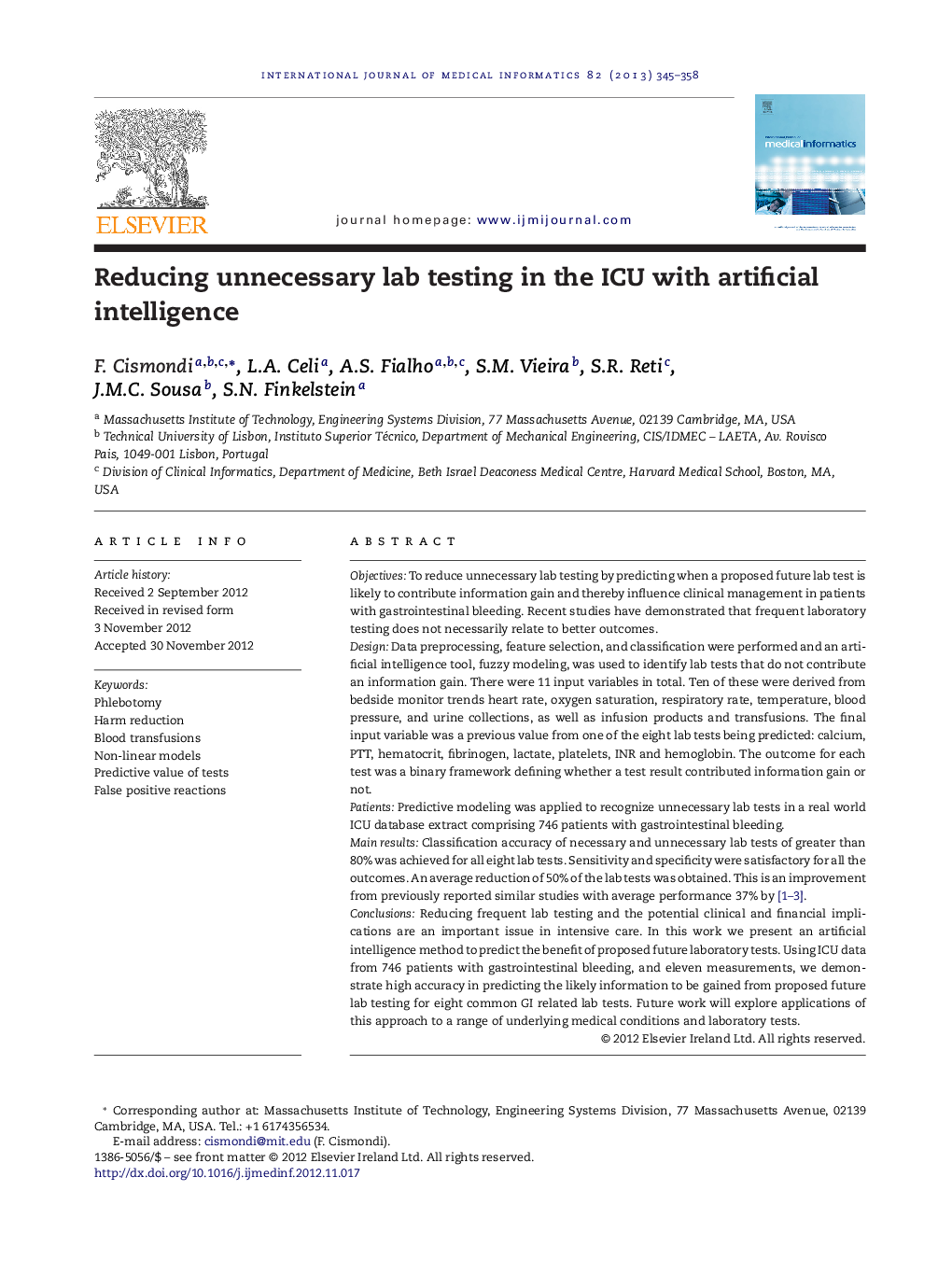| کد مقاله | کد نشریه | سال انتشار | مقاله انگلیسی | نسخه تمام متن |
|---|---|---|---|---|
| 516162 | 1449135 | 2013 | 14 صفحه PDF | دانلود رایگان |

ObjectivesTo reduce unnecessary lab testing by predicting when a proposed future lab test is likely to contribute information gain and thereby influence clinical management in patients with gastrointestinal bleeding. Recent studies have demonstrated that frequent laboratory testing does not necessarily relate to better outcomes.DesignData preprocessing, feature selection, and classification were performed and an artificial intelligence tool, fuzzy modeling, was used to identify lab tests that do not contribute an information gain. There were 11 input variables in total. Ten of these were derived from bedside monitor trends heart rate, oxygen saturation, respiratory rate, temperature, blood pressure, and urine collections, as well as infusion products and transfusions. The final input variable was a previous value from one of the eight lab tests being predicted: calcium, PTT, hematocrit, fibrinogen, lactate, platelets, INR and hemoglobin. The outcome for each test was a binary framework defining whether a test result contributed information gain or not.PatientsPredictive modeling was applied to recognize unnecessary lab tests in a real world ICU database extract comprising 746 patients with gastrointestinal bleeding.Main resultsClassification accuracy of necessary and unnecessary lab tests of greater than 80% was achieved for all eight lab tests. Sensitivity and specificity were satisfactory for all the outcomes. An average reduction of 50% of the lab tests was obtained. This is an improvement from previously reported similar studies with average performance 37% by [1], [2] and [3].ConclusionsReducing frequent lab testing and the potential clinical and financial implications are an important issue in intensive care. In this work we present an artificial intelligence method to predict the benefit of proposed future laboratory tests. Using ICU data from 746 patients with gastrointestinal bleeding, and eleven measurements, we demonstrate high accuracy in predicting the likely information to be gained from proposed future lab testing for eight common GI related lab tests. Future work will explore applications of this approach to a range of underlying medical conditions and laboratory tests.
► Predictive modeling was applied to data from 746 gastrointestinal bleeding patients.
► An artificial intelligence tool was used for the modeling.
► Non invasive measurements were used as the predictive inputs.
► Classification accuracy of greater than 80% was achieved.
► 50% of total testing could be reduced according to the criteria used in this work.
Journal: International Journal of Medical Informatics - Volume 82, Issue 5, May 2013, Pages 345–358